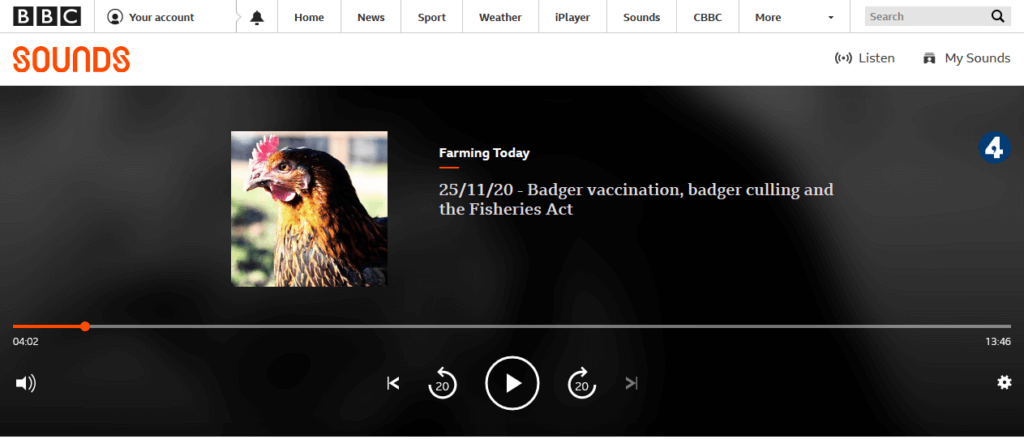
I heard two good things on Farming Today, today – this is the second.
After hearing Luke Pollard talking fish, I heard another good speaker a bit later in Farming Today, Rosie Woodroffe talking Badgers. Now I do know Rosie a bit, not very well but a bit, and I have a lot of time and respect for her science and her views. She was talking about Badgers.
I notice that Anna Hill didn’t mention that Rosie is ‘Professor Rosie‘ whereas, of course, she did mention that the preceding speaker was ‘Deputy President of the NFU’ – by such omissions the science is downplayed and women scientists are downplayed.
But Rosie knows her stuff, and although it is complicated stuff, she explains it very well. If I wanted to be walked through the minefield of Badger/Cattle/Btb issues then Rosie would be one of my guides, for sure. She deployed an analogy in this interview which I’ve been thinking about (idly in my case, usefully in Rosie’s case) and that is between dealing with COVID in humans and bovine tb – she pointed out that Badgers naturally live in what we are now accustomed to thinking of as bubbles, and that the current Badger-culling policy disrupts the social behaviour and displaces potentially infectious Badgers around the countryside to meet lots of other Badgers from other bubbles. This is a new, different and striking way to describe the perturbation effect – it’s not new science, it’s a new account of what we know.
Rosie made many other good points too.
Is Farming Today improving over time? I’m beginning to think that it is. Well, anyway, today they had a good day.
[registration_form]
Strange that it’s always about what should happen to control badgers and not about better bio security for cattle. When you hear tales of a bull doing the rounds at farms only to discover later that that bull was infected with Btb you do have to wonder at just how careful farmers are being.
I am sure, just as in everything, that some farmers take more care than others, but until every herd is managed in an exemplary way, then blaming the badger will always seem the lazy way out.
When a vet. tells me her suckler beef herd is closed; fields double-fenced to prevent nose-to-nose from neighbouring farms; no bought-in feedstuffs; tyre-baths; foot baths; no positive tests until one out of the blue – then “it’s the indigenous phucking mammals” through gritted teeth is a plausible explanation. Not a lazy one, and not necessarily true.
Is Farming Today improving? A very little if at all in my opinion. They still give a deal more air time to the shooters and to the badger killers as when you were on recently Mark when you were talking about the gross/excessive release of pheasants Mr.Tim Bonner got quite a bit more air time than yourself which you had no control over.
They still have a long way to go before they could be considered as giving both side an equitable deal.
Given that Farming Today is supposed to be about farming it is ironic that it is probably the only place on radio (and TV) where you can also regularly hear wildlife and environmental issues aired in a grown up way. I wish I didn’t hear it so often, given that it is on at 5.45 in the morning. The BBC still doesn’t seem to realise how much interest in environmental issues there is amongst the general public. It deserves a prime time slot.